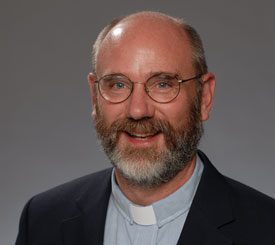Peter Leithart is a teaching elder (TE) in the Presbyterian Church in America. Until recently he was a minister, laboring outside the bounds of his presbytery, in a Communion of Reformed Evangelical Churches (CREC) congregation in Moscow, ID. The CREC is the . . . Continue reading →
PCA GA
Open Discussion Leads To Peace. Squelching Dissent Does Not
By the way, I accept it as fair that if a person advocates positions in writing, his ideas may be criticized and disagreed with vigorously—I won’t squeal about spirited and rational public discourse. Indeed, more of that may lead to more peace . . . Continue reading →
PCA General Assembly Rulings On Virtual Communion
For those who’ve inquired about any PCA precedent on digitally “administering” the Lord’s Supper, below is a pertinent string of excerpts from the Minutes of the 39th, 40th and 41st General Assemblies (2011, 2012 and 2013 in Louisville, Virginia Beach and Greenville SC). Continue reading →
Thoughts On Overture 12 From PCA General Assembly (2023) And Ascension Presbytery’s Sending The Overture To The Civil Magistrate: Part One
Recently, I sent a (brief, four-page) protest to our Presbytery in response to its recent action of instructing our clerk to forward to the magistrates Overture 12 (adjusted for our geography) regarding transgender procedures for minors. Continue reading →
Thoughts On Overture 12 From PCA General Assembly (2023) And Ascension Presbytery’s Sending The Overture To The Civil Magistrate: Part Two
4. Synods and councils are restricted in ways that individual church members, and even church officers, are not restricted. Chapter 31 of the Westminster Confession of Faith (WCF) does not restrict church members from handling or concluding matters that are not ecclesiastical. Continue reading →
Thoughts On Overture 12 From PCA General Assembly (2023) And Ascension Presbytery’s Sending The Overture To The Civil Magistrate: Part Three
The first two parts of this series discussed the confessional considerations for why I protested the sending of Overture 12 to the magistrates. In this final part, I provide two further considerations: practical and historical. II. Practical Considerations At this point, I . . . Continue reading →

